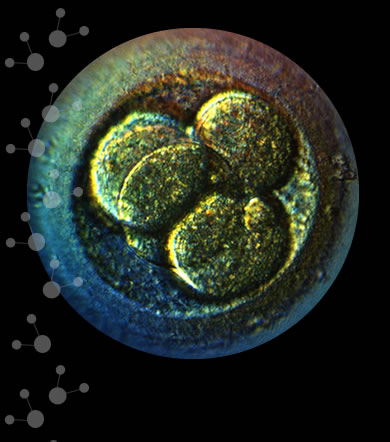
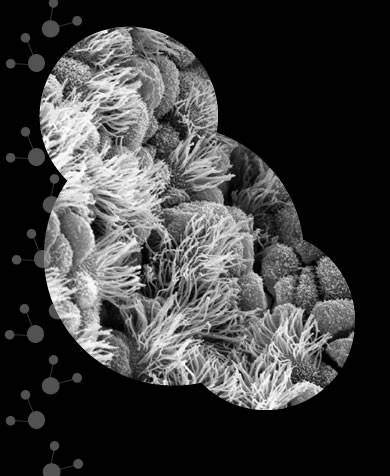
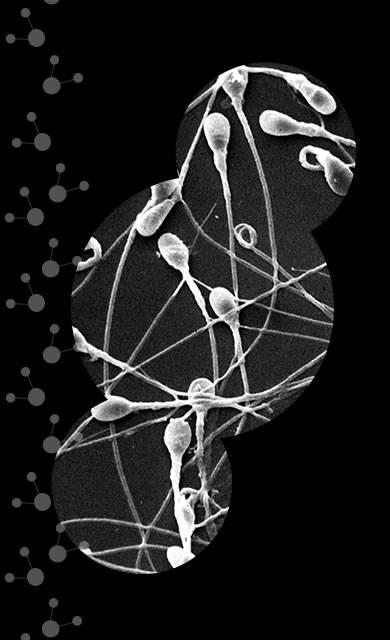
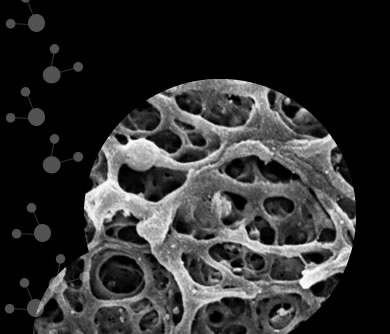
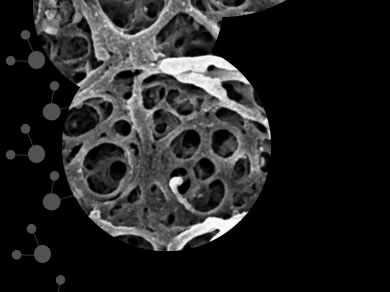
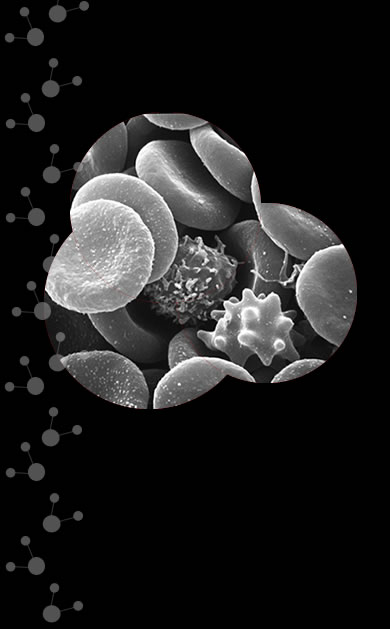
|
Citacions totals >3,500 (Google Scholar, 2017)
1. A Recurrent Deletion of DPY19L2 Causes Infertility in Man by Blocking Sperm Head Elongation and Acrosome Formation.
Harbuz R, Zouari R, Pierre V, Ben Khelifa M, Kharouf M, Coutton C, Merdassi G, Abada F, Escoffier J, Nikas Y, Vialard F, Koscinski I, Triki C, Sermondade N, Schweitzer T, Zhioua A, Zhioua F, Latrous H, Halouani L, Ouafi M, Makni M, Jouk PS, Sèle B, Hennebicq S, Satre V, Viville S, Arnoult C, Lunardi J, Ray PF.
Am J Hum Genet. 2011 Mar 11;88(3):351-61.
2. The Aurora Kinase C c.144delC mutation causes meiosis I arrest in men and is frequent in the North African population.
Dieterich K, Zouari R, Harbuz R, Vialard F, Martinez D, Bellayou H, Prisant N, Zoghmar A, Guichaoua MR, Koscinski I, Kharouf M, Noruzinia M, Nadifi S, Sefiani A, Lornage J, Zahi M, Viville S, Sèle B, Jouk PS, Jacob MC, Escalier D, Nikas Y, Hennebicq S, Lunardi J, Ray PF.
Hum Mol Genet. 2009 Apr 1;18(7):1301-9. [free full text]
3. Function of aurora kinase C (AURKC) in human reproduction.
Harbuz R, Zouari R, Dieterich K, Nikas Y, Lunardi J, Hennebicq S, Ray PF.
Gynecol Obstet Fertil. 2009 Jun;37(6):546-51.
4. Solid lipid nanoparticles and nanoemulsions containing ceramides: preparation and physicochemical characterization.
Deli G, Hatziantoniou S, Nikas Y, Demetzos C.
J Liposome Res. 2009;19(3):180-8.
5. The expression of receptivity markers in the fallopian tube epithelium.
Makrigiannakis A, Karamouti M, Petsas G, Makris N, Nikas G, Antsaklis A.
Histochem Cell Biol. 2009 Aug;132(2):159-67.
6. Scanning electron microscopy study on nanoemulsions
and solid lipid nanoparticles containing high amounts of ceramides.
Hatziantoniou S, Deli G, Nikas Y, Demetzos C, Papaioannou GT.
Micron. 2007;38(8):819-23.
7. Hormonal and cytokine regulation of early implantation.
Makrigiannakis A, Minas V, Kalantaridou SN, Nikas G, Chrousos GP.
Trends Endocrinol Metab. 2006 Jul;17(5):178-85. Epub 2006 May 15.
8. Gene expression profiles and structural/functional features
of the peri-implantation endometrium in natural and gonadotropin-stimulated cycles.
Mirkin S, Nikas G, Hsiu JG, Díaz J, Oehninger S.
J Clin Endocrinol Metab. 2004 Nov;89(11):5742-52. [free full text]
9. Clinical value of endometrial pinopodes detection in artificial donation cycles.
Pantos K, Nikas G, Makrakis E, Stavrou D, Karantzis P, Grammatis M.
Reprod Biomed Online. 2004 Jul;9(1):86-90.
10. Endometrial pinopodes and uterine receptivity.
Nikas G, Makrigiannakis A.
Ann N Y Acad Sci. 2003 Nov;997:120-3.
11. Pathogenesis of endometriosis: natural immunity dysfunction
or autoimmune disease?
Matarese G, De Placido G, Nikas Y, Alviggi C.
Trends Mol Med. 2003 May;9(5):223-8.
12. Synchronous expression of pinopodes and alpha v beta 3
and alpha 4 beta 1 integrins in the endometrial surface epithelium
of normally menstruating women during the implantation window.
Nardo LG, Nikas G, Makrigiannakis A, Sinatra F, Nardo F.
J Reprod Med. 2003 May;48(5):355-61.
13. Coexpression of pinopodes and leukemia inhibitory factor,
as well as its receptor, in human endometrium.
Aghajanova L, Stavreus-Evers A, Nikas Y, Hovatta O, Landgren BM.
Fertil Steril. 2003 Mar;79 Suppl 1:808-14.
14. Molecules in blastocyst implantation. Role of matrix metalloproteinases, cytokines and growth factors.
Nardo LG, Nikas G, Makrigiannakis A.
J Reprod Med. 2003 Mar;48(3):137-47.
15. Endometrial pinopodes: some more understanding on human implantation?
Nikas G, Aghajanova L.
Reprod Biomed Online. 2002;4 Suppl 3:18-23.
16. Endothelial dysfunction in uterine circulation in preeclampsia:
can estrogens improve it?
Svedas E, Nisell H, Vanwijk MJ, Nikas Y, Kublickiene KR.
Am J Obstet Gynecol. 2002 Dec;187(6):1608-16.
17. Formation of pinopodes in human endometrium is associated
with the concentrations of progesterone and progesterone receptors.
Stavreus-Evers A, Nikas G, Sahlin L, Eriksson H, Landgren BM.
Fertil Steril. 2001 Oct;76(4):782-91.
18. Endometrial receptivity in terms of pinopode expression is not impaired in women with endometriosis in artificially prepared cycles.
Garcia-Velasco JA, Nikas G, Remohí J, Pellicer A, Simón C.
Fertil Steril. 2001 Jun;75(6):1231-3.
19. Endometrial receptivity: changes in cell-surface morphology.
Nikas G.
Semin Reprod Med. 2000;18(3):229-35.
20. Detection of endometrial pinopodes by light microscopy.
Develioglu OH, Nikas G, Hsiu JG, Toner JP, Jones HW Jr.
Fertil Steril. 2000 Oct;74(4):767-70.
21. Surface morphology of the human endometrium.
Basic and clinical aspects.
Nikas G, Makrigiannakis A, Hovatta O, Jones HW Jr.
Ann N Y Acad Sci. 2000;900:316-24.
22. Pinopodes as markers of endometrial receptivity in clinical practice.
Nikas G.
Hum Reprod. 1999 Dec;14 Suppl 2:99-106. [free full text]
23. Cell-surface morphological events relevant to human implantation.
Nikas G.
Hum Reprod. 1999 Dec;14 Suppl 2:37-44. [free full text]
24. Coculture of human embryos with autologous human endometrial epithelial cells in patients with implantation failure.
Simón C, Mercader A, Garcia-Velasco J, Nikas G, Moreno C, Remohí J, Pellicer A.
J Clin Endocrinol Metab. 1999 Aug;84(8):2638-46. [free full text]
25. Endometrial estrogen and progesterone receptor
and pinopode expression in stimulated cycles of oocyte donors.
Develioglu OH, Hsiu JG, Nikas G, Toner JP, Oehninger S, Jones HW Jr.
Fertil Steril. 1999 Jun;71(6):1040-7.
26. Endometrial pinopodes indicate a shift in the window
of receptivity in IVF cycles.
Nikas G, Develioglu OH, Toner JP, Jones HW Jr.
Hum Reprod. 1999 Mar;14(3):787-92. [free full text]
27. Interaction between PC12 liposomes encapsulating ATP and human spermatozoa.
Skiba-Lahiani M, Skiba M, Nikas G, Auger J, Fattal E, Delattre J, Courtot AM.
Int J Pharm. 1998 Oct;172(1-2):147-159
28. Uterine pinopodes in peri-implantation human endometrium. Clinical relevance.
Nikas G, Psychoyos A.
Ann N Y Acad Sci. 1997 Jun 17;816:129-42.
29. Compaction and surface polarity in the human embryo in vitro.
Nikas G, Ao A, Winston RM, Handyside AH.
Biol Reprod. 1996 Jul;55(1):32-7. [free full text]
30. Uterine pinopodes as markers of the 'nidation window' in cycling women receiving exogenous oestradiol and progesterone.
Nikas G, Drakakis P, Loutradis D, Mara-Skoufari C, Koumantakis E, Michalas S, Psychoyos A.
Hum Reprod. 1995 May;10(5):1208-13.
31. Corticotropin-releasing hormone (CRH) is expressed at the implantation sites of early pregnant rat uterus.
Makrigiannakis A, Margioris AN, Le Goascogne C, Zoumakis E, Nikas G, Stournaras C, Psychoyos A, Gravanis A.
Life Sci. 1995;57(20):1869-75.
32. The role of prostaglandins in blastocyst implantation.
Psychoyos A, Nikas G, Gravanis A.
Hum Reprod. 1995 Dec;10 Suppl 2:30-42.
33. Hormonal anti-implantation agents: antiprogestins.
Psychoyos A, Nikas G, Sarantis L, Gravanis A.
Hum Reprod. 1995 Dec;10 Suppl 2:140-50.
34. The zona reaction in human oocytes as seen with scanning electron microscopy.
Nikas G, Paraschos T, Psychoyos A, Handyside AH.
Hum Reprod. 1994 Nov;9(11):2135-8.
35. Effects of cholic acid and 'Protectaid' formulations on human sperm motility and ultrastructure.
Courtot AM, Nikas G, Gravanis A, Psychoyos A.
Hum Reprod. 1994 Nov;9(11):1999-2005.
36. Uterine pinopodes as markers of uterine receptivity.
Psychoyos A, Nikas G.
Assist Reprod Rev. 1994;4(1):26-32. |



